Features
Recent articles
In-depth analysis of important topics in neuroscience
A brief history of precision self-scanning
When a researcher solved a logistical problem by going rogue, the idea proved remarkably infectious.
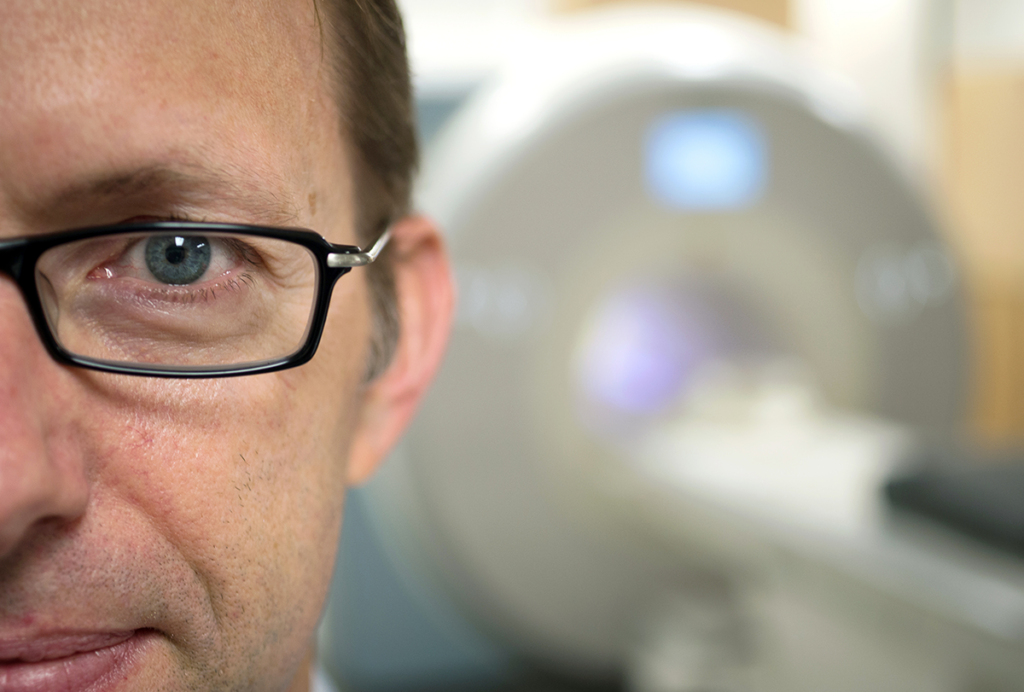
A brief history of precision self-scanning
When a researcher solved a logistical problem by going rogue, the idea proved remarkably infectious.
The state of neuroscience in 2025: An overview
The Transmitter presents a portrait of the field through four lenses: its focus, its output, its people and its funding.

The state of neuroscience in 2025: An overview
The Transmitter presents a portrait of the field through four lenses: its focus, its output, its people and its funding.
New questions around motor neurons and plasticity
A researcher’s theory hangs muscle degeneration on a broken neural circuit.
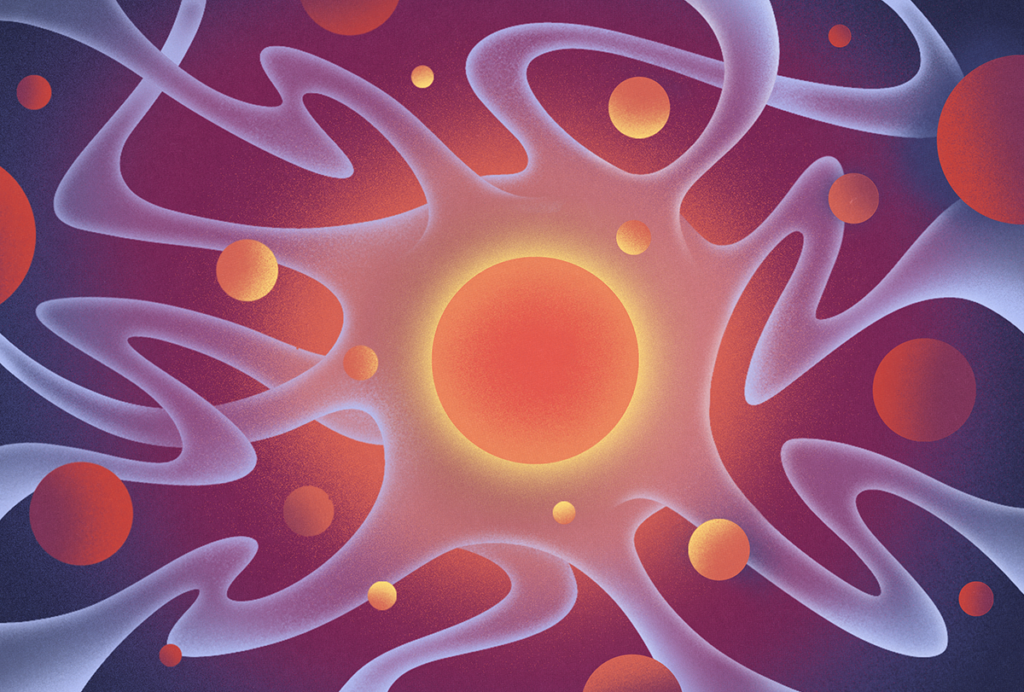
New questions around motor neurons and plasticity
A researcher’s theory hangs muscle degeneration on a broken neural circuit.
Cephalopods, vision’s next frontier
For decades, scientists have been teased by the strange but inaccessible cephalopod visual system. Now, thanks to a technological breakthrough from a lab in Oregon, data are finally coming straight from the octopus brain.
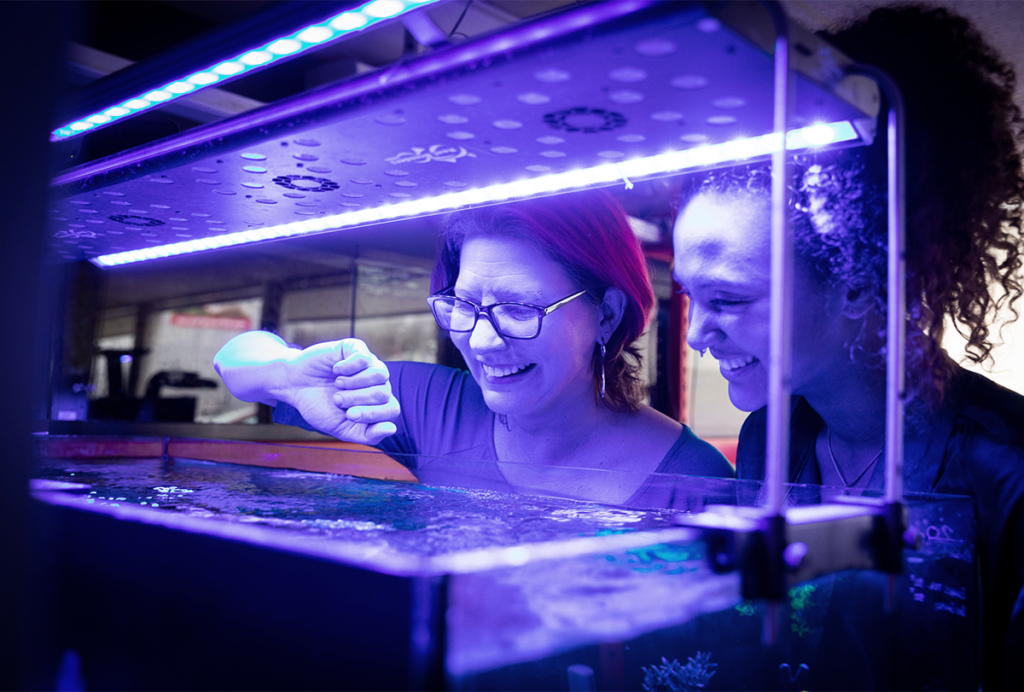
Cephalopods, vision’s next frontier
For decades, scientists have been teased by the strange but inaccessible cephalopod visual system. Now, thanks to a technological breakthrough from a lab in Oregon, data are finally coming straight from the octopus brain.
The last two-author neuroscience paper?
Author lists on papers have ballooned, and it’s getting hard to discern contribution.

The last two-author neuroscience paper?
Author lists on papers have ballooned, and it’s getting hard to discern contribution.
Static pay, shrinking prospects fuel neuroscience postdoc decline
Postdoctoral researchers sponsored by the National Institutes of Health now toil longer than ever before, for less money. They are responding accordingly.

Static pay, shrinking prospects fuel neuroscience postdoc decline
Postdoctoral researchers sponsored by the National Institutes of Health now toil longer than ever before, for less money. They are responding accordingly.
A scientific fraud. An investigation. A lab in recovery.
Science is built on trust. What happens when someone destroys it?

A scientific fraud. An investigation. A lab in recovery.
Science is built on trust. What happens when someone destroys it?
Putting a bright idea to the test
A surprising wave of findings in mice suggests that light and sound flickering at 40 hertz clears the brain of Alzheimer’s-disease-linked plaques. Several companies are hoping to prove it works in people.
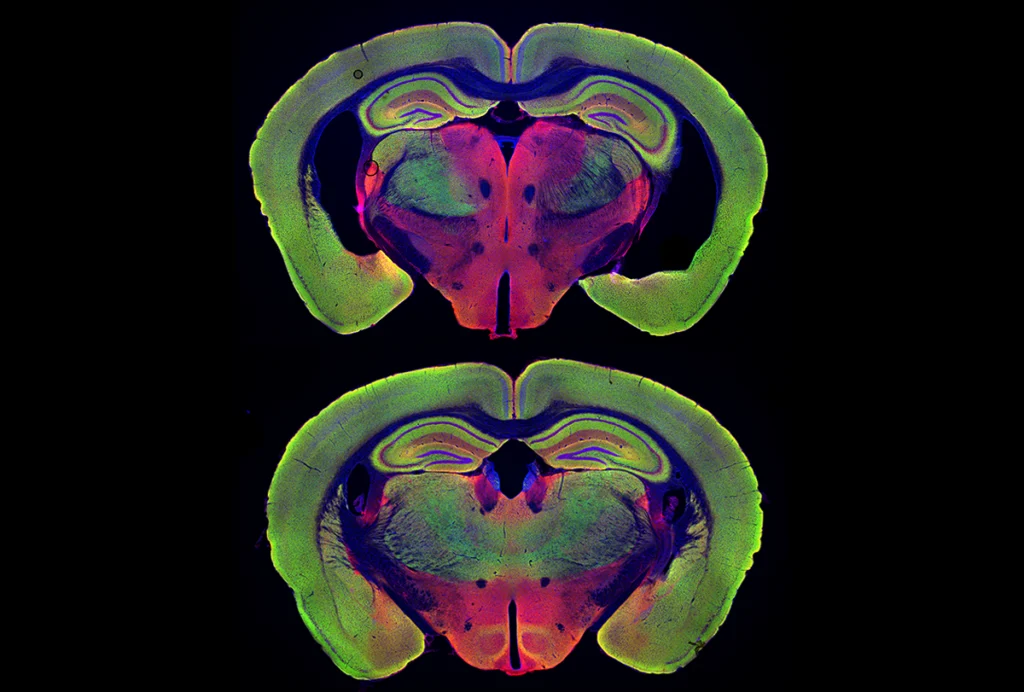
Putting a bright idea to the test
A surprising wave of findings in mice suggests that light and sound flickering at 40 hertz clears the brain of Alzheimer’s-disease-linked plaques. Several companies are hoping to prove it works in people.
The perils of parachute research
Scientists who study autism in lower-income countries are working to end practices that exploit or ignore collaborators and communities on the ground.
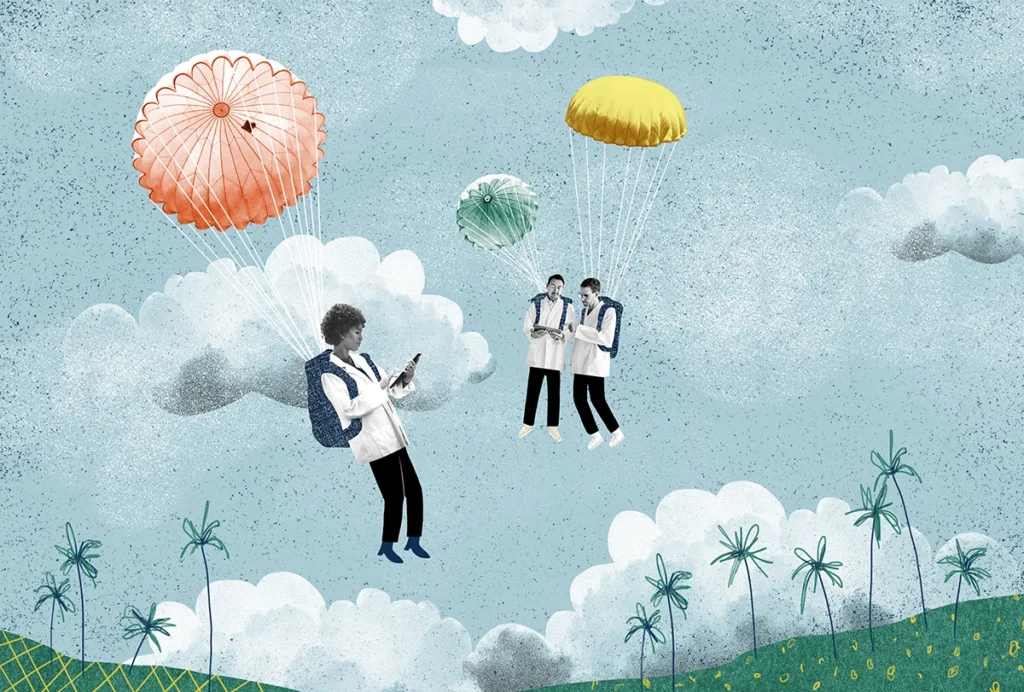
The perils of parachute research
Scientists who study autism in lower-income countries are working to end practices that exploit or ignore collaborators and communities on the ground.
Can an emerging field called ‘neural systems understanding’ explain the brain?
This mashup of neuroscience, artificial intelligence and even linguistics and philosophy of mind aims to crack the deep question of what "understanding" is, however un-brain-like its models may be.

Can an emerging field called ‘neural systems understanding’ explain the brain?
This mashup of neuroscience, artificial intelligence and even linguistics and philosophy of mind aims to crack the deep question of what "understanding" is, however un-brain-like its models may be.
Explore more from The Transmitter
Dendrites help neuroscientists see the forest for the trees
Dendritic arbors provide just the right scale to study how individual neurons reciprocally interact with their broader circuitry—and are our best bet to bridge cellular and systems neuroscience.

Dendrites help neuroscientists see the forest for the trees
Dendritic arbors provide just the right scale to study how individual neurons reciprocally interact with their broader circuitry—and are our best bet to bridge cellular and systems neuroscience.
Two primate centers drop ‘primate’ from their name
The Washington and Tulane National Biomedical Research Centers—formerly called National Primate Research Centers—say they made the change to better reflect the breadth of research performed at the centers.

Two primate centers drop ‘primate’ from their name
The Washington and Tulane National Biomedical Research Centers—formerly called National Primate Research Centers—say they made the change to better reflect the breadth of research performed at the centers.
Post-infection immune conflict alters fetal development in some male mice
The immune-conflict between dam and fetus could help explain sex differences in neurodevelopmental conditions.

Post-infection immune conflict alters fetal development in some male mice
The immune-conflict between dam and fetus could help explain sex differences in neurodevelopmental conditions.